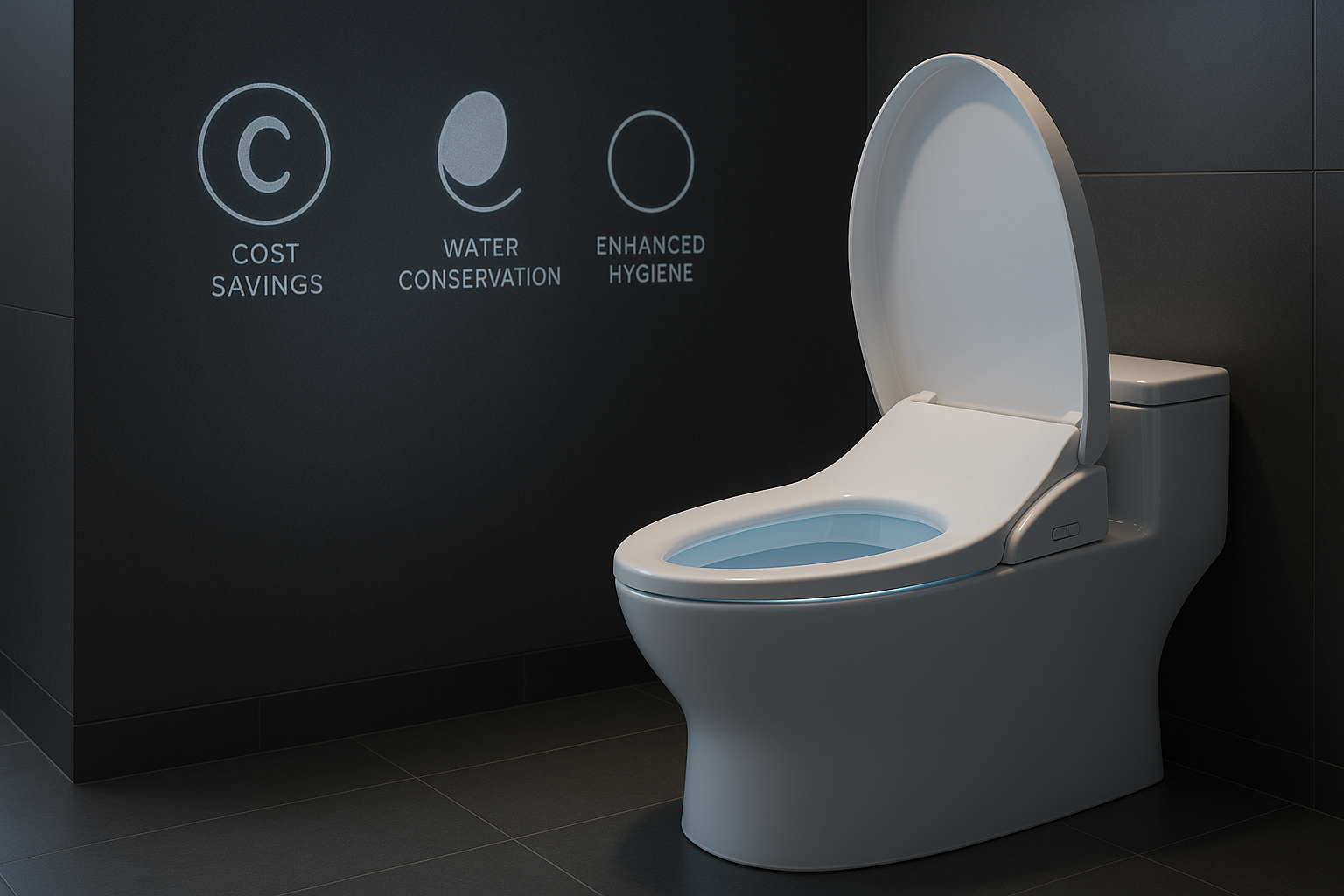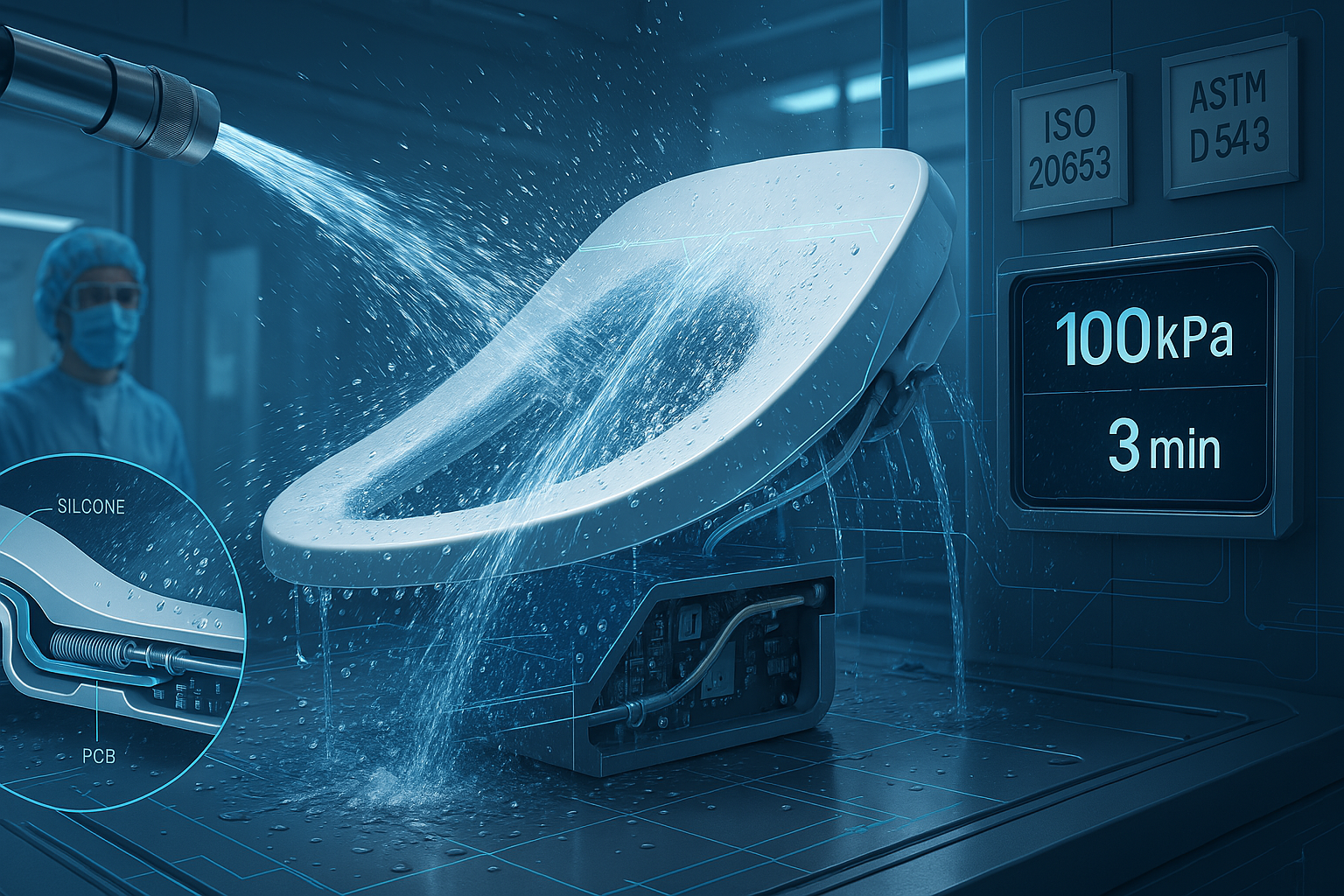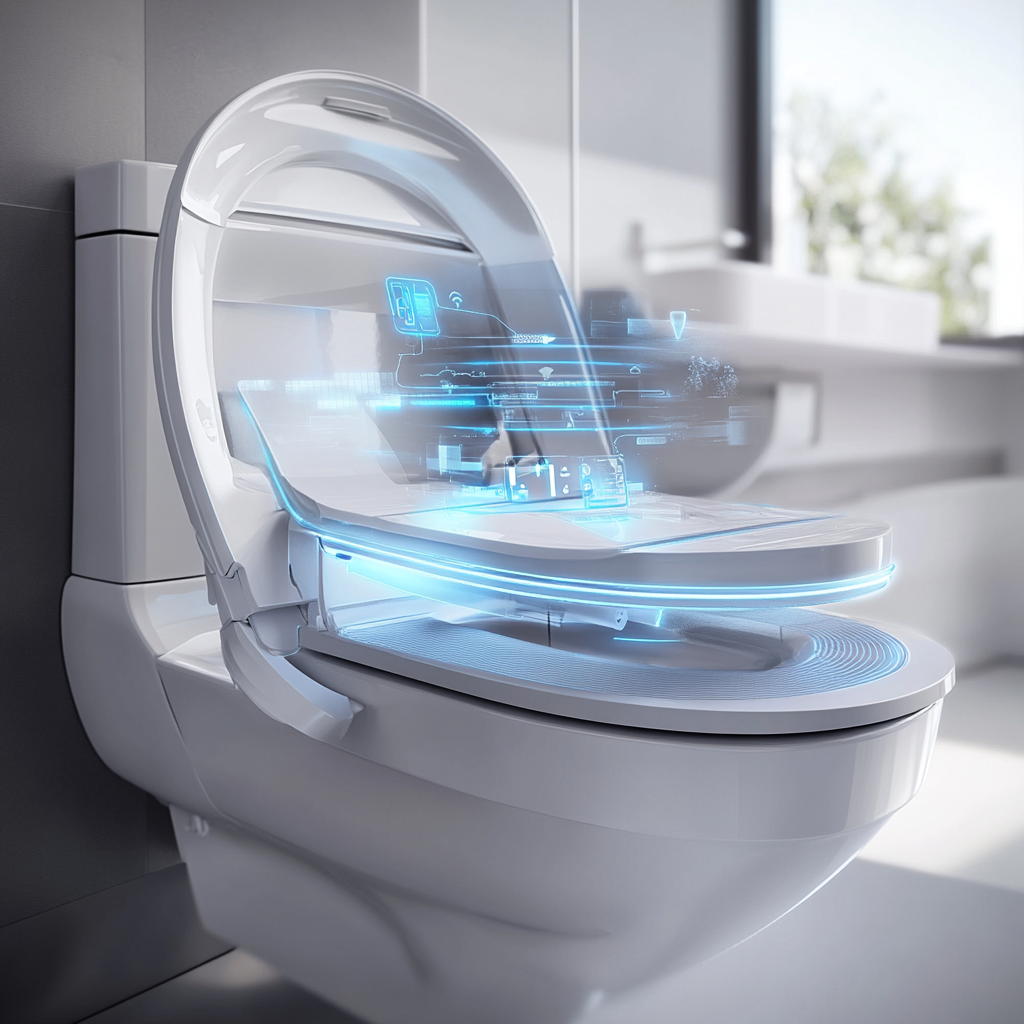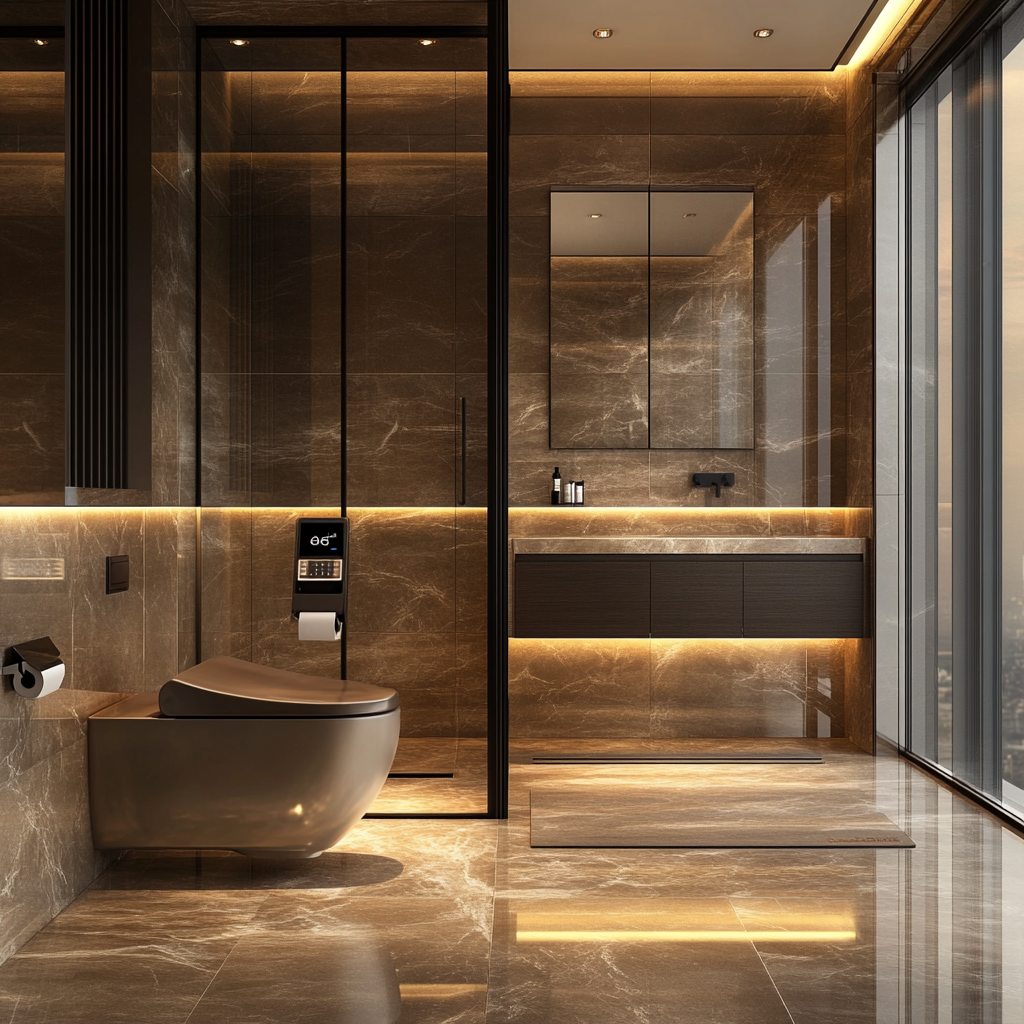As environmental concerns continue to grow, industries worldwide are shifting towards sustainable practices, and the bathroom industry is no exception. Eco-friendly smart toilet seats are emerging as a key solution for reducing water waste, energy consumption, and environmental impact.
For businesses in the hospitality, healthcare, and real estate sectors, adopting these sustainable products not only aligns with global environmental goals but also enhances brand reputation and customer satisfaction. Let’s explore how eco-friendly smart toilet seats are shaping the future of modern bathrooms.
The Growing Demand for Sustainable Bathroom Solutions
Sustainability is no longer a niche concern; it’s a global priority. Consumers and businesses alike are seeking products that minimize environmental impact without compromising on quality or functionality.
Consumer Awareness
According to a Nielsen report, 73% of global consumers say they would change their consumption habits to reduce their environmental impact. This shift in consumer behavior is driving demand for eco-friendly bathroom products, including smart toilet seats.
Regulatory Pressures
Governments and organizations worldwide are implementing stricter regulations on water and energy usage. For example, the Environmental Protection Agency (EPA) promotes water-efficient fixtures through its WaterSense program, encouraging businesses to adopt sustainable solutions.
Key Features of Eco-Friendly Smart Toilet Seats
Eco-friendly smart toilet seats are designed with sustainability in mind, incorporating features that reduce water and energy consumption while maintaining high performance.
Water-Saving Technology
Traditional toilets can use up to 6 gallons of water per flush, but smart toilet seats with bidet functions can significantly reduce this amount. Many models feature adjustable water pressure and flow settings, allowing users to customize their experience while conserving water.
Energy Efficiency
Smart toilet seats often include energy-saving modes that reduce power consumption during periods of inactivity. Some models even use renewable energy sources, such as solar power, to further minimize their environmental footprint.
Sustainable Materials
Manufacturers are increasingly using eco-friendly materials in their products, such as recycled plastics and biodegradable components. These materials not only reduce waste but also appeal to environmentally conscious consumers.
Benefits for Businesses
Adopting eco-friendly smart toilet seats offers numerous advantages for businesses, from cost savings to enhanced brand reputation.
Reduced Operating Costs
Water and energy-efficient smart toilet seats can significantly lower utility bills, making them a cost-effective investment for businesses. For example, hotels and healthcare facilities can save thousands of dollars annually by reducing water and energy consumption.
Enhanced Brand Image
Sustainability is a powerful differentiator in today’s market. Businesses that prioritize eco-friendly practices can attract environmentally conscious customers and strengthen their brand reputation.
Compliance with Regulations
By adopting sustainable bathroom solutions, businesses can ensure compliance with environmental regulations and avoid potential fines or penalties.
Applications in Commercial Spaces
Eco-friendly smart toilet seats are particularly well-suited for commercial spaces, where their sustainability features can have a significant impact.
Luxury Hotels and Resorts
High-end hotels are increasingly adopting eco-friendly smart toilet seats to appeal to environmentally conscious travelers. These products not only enhance guest experiences but also align with the hotel’s sustainability goals.
Healthcare Facilities
In healthcare settings, hygiene and sustainability are equally important. Eco-friendly smart toilet seats with self-cleaning and water-saving features help hospitals and clinics maintain high standards of cleanliness while reducing their environmental impact.
Office Buildings and Public Spaces
Commercial buildings and public spaces can also benefit from eco-friendly smart toilet seats. These products reduce water and energy consumption, contributing to the building’s overall sustainability efforts.
The Role of Technology in Sustainability
Advancements in technology are playing a crucial role in making smart toilet seats more sustainable.
IoT and Smart Sensors
IoT-enabled smart toilet seats can optimize water and energy usage based on real-time data. For example, sensors can detect when the toilet is in use and adjust settings accordingly to minimize waste.
Health and Environmental Monitoring
Some smart toilet seats include features that monitor both user health and environmental impact. For instance, they can track water usage and provide insights on how to further reduce consumption.
Market Trends and Future Outlook
The eco-friendly smart toilet seat market is poised for significant growth as sustainability becomes a top priority for consumers and businesses alike.
Global Market Growth
According to Grand View Research, the global smart bathroom market is expected to grow at a CAGR of 8.9% from 2023 to 2030, driven by increasing demand for sustainable solutions.
Innovation and Competition
As competition in the market intensifies, manufacturers are investing in research and development to create












